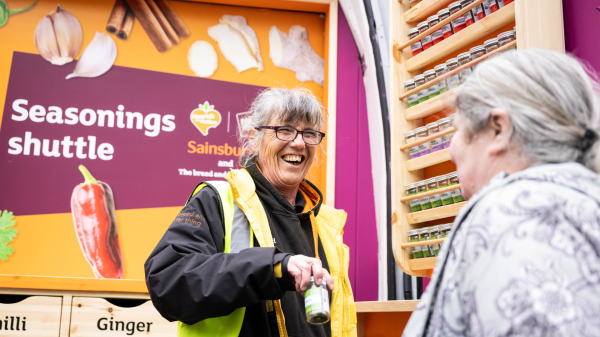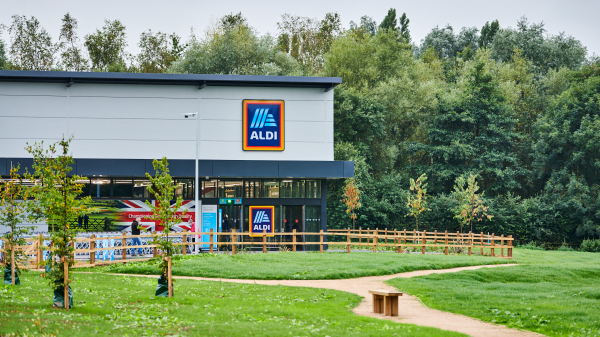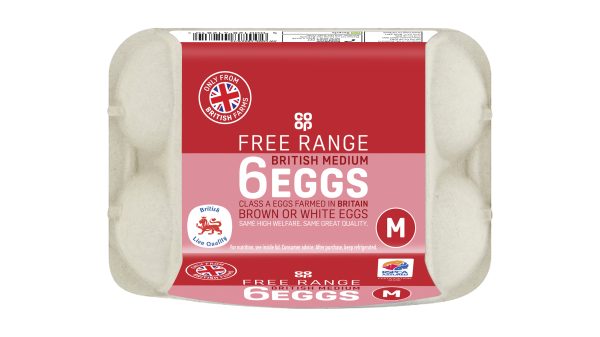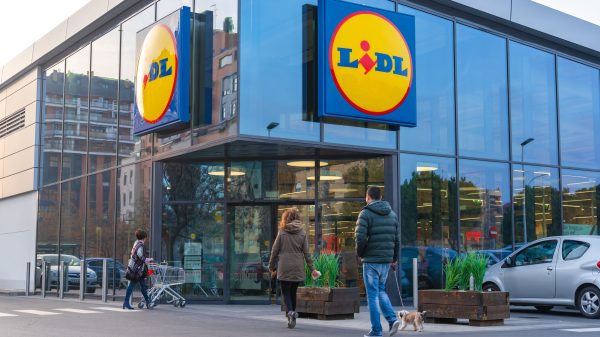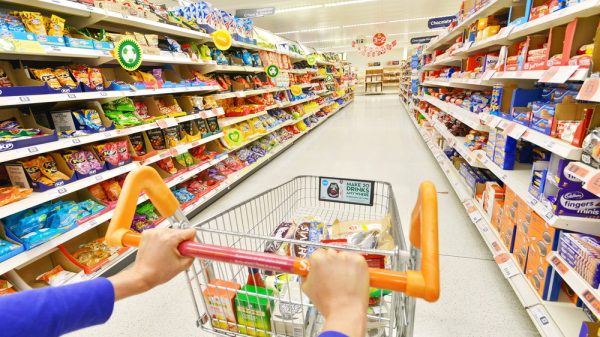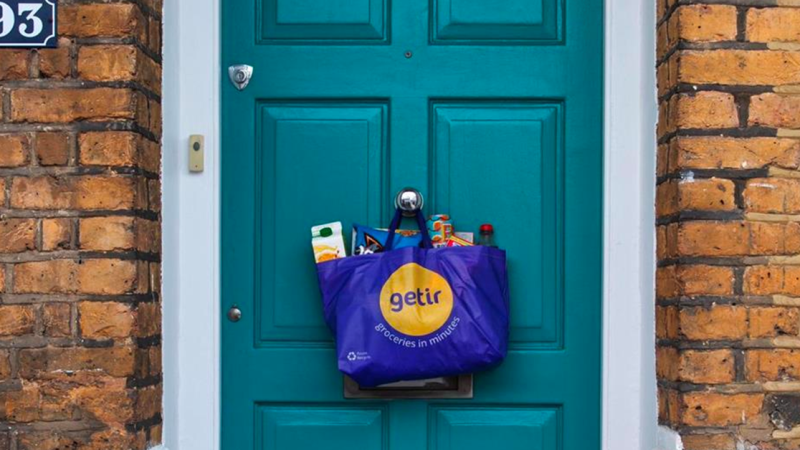2023 welcomed a whole host of anticipated and unexpected trends from expanding food-to-go lines to shrinkflation.
As we enter 2024, we take a look at what industry bosses and experts believe will be the biggest grocery trends of the year, spanning AI, healthy eating, shopping for value and sustainability.
Prioritising a healthier lifestyle
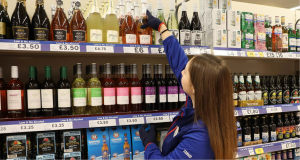
IGD global insights leader Bryan Roberts expects health and wellness to be an area that will “see a lot of progress as retailers’ step in to help shoppers make smarter choices” in 2024.
Following the rollout of location restrictions to high in fat, salt and sugar (HFSS) products on 1 October 2022, Waitrose is predicting more low-fat-salt-sugar innovation, highlighting that 47% of its shoppers said they factor in whether a product is HFSS before buying.
British Retail Consortium director of food and sustainability Andrew Opie also predicts there will be a “renewed interest in obesity and the role retailers can play in tackling it”.
“We expect policy announcements in Scotland and Wales, and it is likely to be higher on the political agenda in the run up to the election,” he adds.
Really Good Culture retail specialist Phil McMahon says that in this “era of wellbeing prioritisation” he believes no and low alcohol drinks will be “normalised”, noting that it was “a trend that took a big step forward in 2023 and will take a giant leap forward in 2024”.
Last year, Tesco found that demand for no and low alcohol soared by more than 20%, while non-alcoholic wine rose by nearly 15% and demand for spirit alternatives grew by almost 10%.
McMahon explains: “Social attitudes, particularly among Gen Z, are shifting significantly and the wheels of long-term change are in motion. More and more people want to be able to choose when and how often they enjoy themselves without alcohol.
“Expect to see more alcohol-free events in spaces traditionally synonymous with alcohol consumption, alcohol brands will become increasingly less preferred for sponsorships, and with a general election on the cards this year we may even see it used in an attempt to gain political capital.”
Gut health

Just this month, M&S launched a world-first collaboration with nutrition-science company Zoe to deliver a new Gut Shot milk drink with kefir and berries which includes over 5bn live cultures from 14 strains of friendly bacteria, as well as being high in fibre and a source of calcium.
Global Data associate retail analyst Joe Dawson says that this partnership “is an example of how retailers will be investing in less processed and healthier products as consumers become more health conscious.”
McMahon also believes that gut health will be a big trend in 2024.
While knowledge of the benefits that probiotic foods and drinks offer has “seriously lagged behind” he says, it is set to now “become a unique shopper mission for a lot of people”.
“Dairy-based options like yoghurt and kefir have traditionally hogged the limelight here, but expect to see other categories dialling up their communications to capitalise on this rising trend. Kombucha, kefir water, miso, tempeh, kimchi, sauerkraut, and pickle brands will start finding their way into new formats and ultimately into more shoppers’ baskets.”
The rise of AI in food

Artificial Intelligence (AI) is gradually being used more often in the grocery space, and was most recently adopted by rival rapid delivery firms Just Eat and Uber Eats which both launched ‘AI assistant’ features on their UK apps to speed up ordering processes and better engage with customers.
Waitrose innovations manager Lizzie Haywood says: “The future of food definitely involves AI, aiding us in creating recipes, predicting trends and personalising meals,” however adds that “there will always be a human needed in the loop to create the best-quality and best-tasting food”.
Consumer expert and retail consultant Peter Cross, the former customer experience director at John Lewis, agrees that “understanding how to leverage AI will clearly be a priority”.
“I’m hopeful that this might be the year that generative AI, which has become invaluable when it comes to reporting on the back end, starts to bring real benefits to consumers on the front end, who remain sceptical and largely frustrated by a lot of what they’ve seen so far.”
Shopping around for lower prices
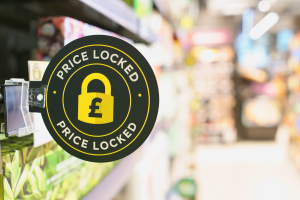
This is certainly not a new trend but Cross says that “value for money will remain high on the consumer priority list for the next 12 months, putting consistent pressure on the sector to compete on price.”
Aldi UK managing director of buying Julie Ashfield says that throughout 2023, the discounter saw “a shift in shopping habits towards low prices, adding that “as households remain under real pressure from higher living costs, we expect this trend to continue throughout this year”.
“Shoppers have been turning their backs on the traditional full-price supermarkets over the past year and switching to Aldi from every other major supermarket.”
Kanar strategic insight director Tom Steel says that value-based marketing strategies “will still be really strong, particularly in the first half of 2024.”
“The deals all retailers are offering is growing and while we tend to see quite high rates over Christmas, since June or July last year we saw that each month, the level kept going up. We would expect year-on-year the level to increase throughout 2024.”
Steel says that while these discounts and promotional offers are “ultimately to help people manage their budgets,” he adds that the rise is also due to brands responding to own-label.
Over the last four weeks, the growth rate for brands was 6%, in comparison to 8.4% for own-label , according to Steel and he expects the gap “to get even smaller” in 2024.
However, GlobalData analyst Joe Dawson believes that private label innovation “is likely to take centre stage” again this year.
“Many consumers switched to more affordable private-label alternatives to save money, and retailers will be investing in the quality and value of these ranges to retain these customers.”
Increased scrutiny of loyalty schemes

McMahon predicts that loyalty schemes and member pricing will receive increased scrutiny in 2024 as the CMA prepares to undergo is investigation into such programmes.
He says: “It’s never been more confusing to keep track of grocery prices. It’s one thing for professionals in the industry to understand the complex factors that can influence pricing, but it needs to be viewed through the eyes of the average consumer.
“Prices are rising, yet supermarkets constantly advertise price reductions. Different store formats have different prices. Member prices that look like regular prices vs punitive non-member prices. Aldi are the cheapest, but are they really if Tesco, Sainsbury’s and Asda are price-matching them?” he questions.
The outcome of the CMA investigation into loyalty schemes will be pivotal for supermarkets.
McMahon says: “We have already seen media coverage claiming member price schemes are more disingenuous than we are being led to believe. Shoppers cannot possibly plan household budgets for 2024 with any certainty and they will at some point grow weary of the constant fluctuations in price.”
“If it comes to light that supermarkets have been misleading about their loyalty schemes then shoppers will vote with their feet and they’ll be heading straight to their nearest Aldi store.”
A greater focus on sustainability
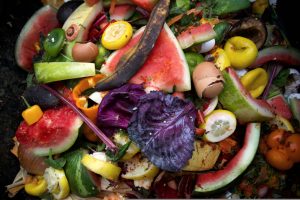
Roberts believes that sustainability will become “more top-of-mind after a few years on the back burner thanks to Covid and the cost-of-living crisis”.
“Brands and retailers will continue their collaborative efforts to minimise their own impact on the planet as well as helping shoppers in regard too.”
Opie agrees, and believes tackling waste will be top of the agenda.
He says: “The government is developing its new scheme on extending producer responsibility for packaging before charges begin in 2025. It is also continuing to develop plans for a new deposit return scheme and recently announced proposals for retailers to take more responsibility to collect and recycle waste electricals.”
However, he stressed that these changes will “add considerable cost and complexity to the way retailers operate”.
Cross, on the other hand, fears “a lamentable lack of leadership from government will probably mean that 2024 is unlikely to be the breakthrough year in terms of meaningful change to consumer behaviour”.
While only time will tell if these predictions become a reality, technology, health and wellness and sustainability are likely to be front of mind for many grocery retailers.

